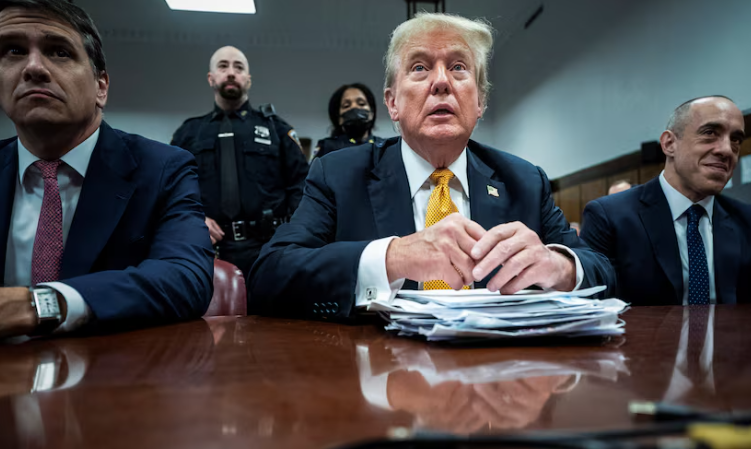Jurors in Donald Trump’s hush money trial concluded their first day of closed-door deliberations on Wednesday without reaching a verdict. The case involves the only U.S. president ever charged with a crime. The 12 jurors and six alternates plan to return to the New York courthouse at 9:30 ET (1330 GMT) on Thursday to weigh the evidence and witness testimony from the five-week trial.
Trump, 77, faces charges of falsifying business documents to cover up a $130,000 payment made just before the 2016 presidential election to silence porn star Stormy Daniels, who claimed they had a sexual encounter. Trump has pleaded not guilty and denies any liaison with her. He left the courtroom pumping his fist in the air and ignored reporters’ questions.
Late in the day, jurors requested transcripts of testimony from two witnesses: Michael Cohen, Trump’s former fixer, who testified that Trump knew about the payoff and helped cover it up, and David Pecker, former National Enquirer publisher, who testified about efforts to bury stories that could harm Trump’s candidacy. Jurors also asked Justice Juan Merchan to repeat his detailed instructions, though it was unclear if they wanted all instructions or just a portion.
A unanimous agreement by all 12 jurors is required for any verdict. If jurors cannot resolve their differences, the judge will declare a mistrial.
Rigged?
Trump, a Republican, has framed the trial as an attempt to undermine his bid to reclaim the White House from Democratic President Joe Biden in the November 5 election. “Mother Teresa could not beat these charges,” he told reporters outside the courtroom, asserting, “The whole thing is rigged.”
Justice Merchan instructed jurors to scrutinize Cohen’s testimony carefully because he was an accomplice to the payments central to the case. Cohen, who served as Trump’s fixer and private lawyer for about a decade, testified that he paid the $130,000 from his own pocket to keep Daniels from revealing the alleged sexual encounter with Trump that she says occurred ten years before the 2016 election. Cohen also testified that Trump approved the payoff and agreed to reimburse him through monthly installments disguised as legal fees after the election.
Trump’s lawyers argued that jurors cannot trust Cohen, a convicted felon with a history of lying. “He is literally the greatest liar of all time,” Trump lawyer Todd Blanche told jurors on Tuesday. Prosecutors countered by presenting voice messages, emails, and other evidence to support Cohen’s testimony.
Standard of proof
Prosecutors from Manhattan District Attorney Alvin Bragg’s office bear the burden of proving Trump’s guilt “beyond a reasonable doubt,” the standard under U.S. law. They contend that the Daniels payment could have contributed to Trump’s 2016 victory over Democrat Hillary Clinton by keeping an unflattering story from the public eye.
A conviction would not prevent Trump from pursuing the presidency or taking office if he wins. Opinion polls indicate a tight race between Trump and Biden, but Reuters/Ipsos polling suggests a guilty verdict could erode Trump’s support among independent and some Republican voters. If convicted, Trump faces up to four years in prison, though penalties for the crime he is charged with often result in fines or probation. A not guilty verdict would remove a significant legal hurdle, freeing Trump to focus on his campaign.
If convicted, Trump is expected to appeal. He faces three other criminal prosecutions, but they are not likely to go to trial before the November election. Biden campaign officials believe any verdict will not substantially alter the election dynamics.

